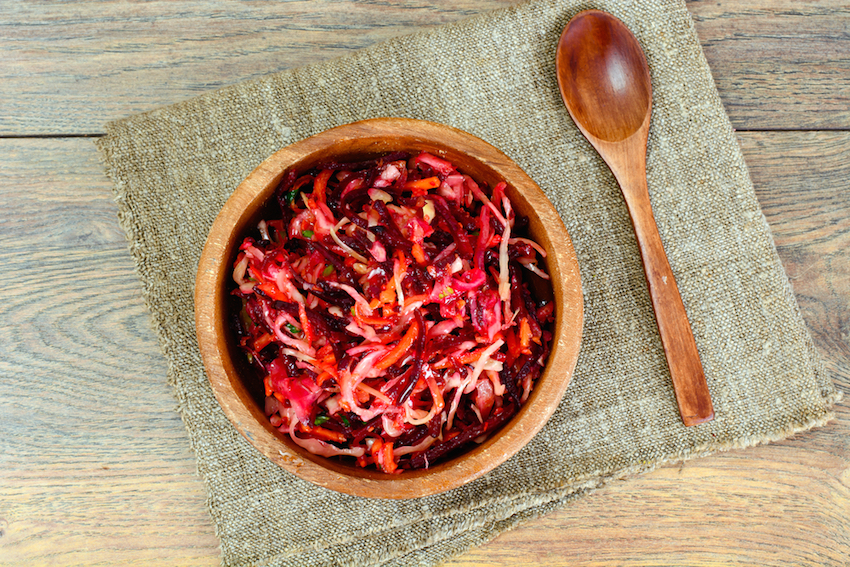There are many contributing factors that affect your gut health. Factors such as diet, food intolerances, lifestyle, hormones, sleep and medications will affect the state of how your body digests and eliminates what you eat and drink.
Your gut is the gateway to better health. This is because its primary role is to break down and absorb your food, providing your body with the nutrients and fuel to function at its best.
Feed your gut well, and your health will thrive, but feed it with the wrong types of foods and you compromise your body’s ability to promote growth and repair, support your immune system and keep your muscles and organs healthy.
While everyone has their own distinct genetic makeup and exposure to different environmental factors that influence their gut health, there are a few common factors that can trigger digestive issues.
Our bodies – specifically, our guts – are full of bacteria. In fact, there is more bacteria in the human body than there are cells, with approximately 100 trillion microorganisms inhabiting the bowel alone.
Thankfully, the vast majority of these bugs are good – or at least they should be, if we’re talking about an ideal gut. And that’s the key to gut health – ensuring that we have more of the ‘good’ bacteria than the ‘bad’.
These beneficial microorganisms are known as ‘probiotics’ They help us:
• digest food
• absorb nutrients
• break down some medications
• kill some of the bad bacteria that lead to infections
So, let’s learn how to heal out gut and get the most out of life!
Eat Probiotic Rich Foods
Since ancient times people have used probiotic rich foods, which have been naturally fermented, to provide the good bacteria needed for a healthy gut and overall health.
Kimchi, kombucha, kefir, miso, tempeh, sauerkraut, natural yogurt and apple cider vinegar are all examples of fermented foods you can eat for a healthier gut. In fact, some of these couldn’t be simpler to make.
Don’t Forget The Prebiotics
You can elevate the effectiveness of your probiotic rich foods by consuming some prebiotic foods too. Prebiotics are non-digestible carbohydrates that ‘feed’ the probiotics, encouraging them grow and multiply in your gut.
Prebiotic rich foods include artichoke, asparagus, bananas, chicory, garlic, onions, tomatoes and whole grains.
Use Probiotic Supplements
While fermented foods are the best and most natural way to get a healthy dose of probiotic bacteria, some people simply can’t stand the thought of consuming these cultures. In this case, probiotic supplements can be a good alternative.
It’s very important to choose a high-quality supplement from a reputable brand. Make sure it contains live strains of bacteria – which need to be kept refrigerated.
Cut Out Sugar & Processed Foods
The bad bacteria in our guts go into overdrive when we eat too much sugar! They are also quite partial to the fats found in processed foods – including cookies, cakes, chips, fries and pastries.
Consider if Antibiotics are Always Necessary
Some estimate that half of the antibiotics we are prescribed are unnecessary. We already know that this over-prescription leads to drug resistant bacteria, but it may also be seriously impacting the health of our guts in the long-term. Following a course of broad-spectrum antibiotics, it can take weeks, months or even years for the gut’s microbes to get back into balance. Shockingly, some researchers believe that antibiotics may even be causing permanent changes to the microflora of all people from generation to generation – passed on from mother to child.
The below Bone Broth recipe comes from Tiarna here in the EverEscents head office – wonderful for this time of the year – Be sure to let us know if you make it!
Ingredients:
• 8 Organic chicken drumsticks
• 4 cloves garlic (finely diced)
• 1 onion (roughly chopped)
• 1 inch of ginger root (roughly chopped)
• 1 medium carrot (diced)
• 1 parsnip (diced)
• 1 turnip (diced)
• 2 sticks of celery (diced)
• 4-6 cups of Organic chicken stock
• 2-4 cups of water
Preparation:
• Fill your pot full with water and stock, and add the herbs and vegetables.
• Cook on medium-high until bubbling, then reduce heat to low and allow to simmer covered, at least 8 hours, up to 48 hours, to taste.
• ENJOY ?


